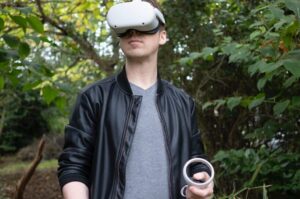Digital Alternative Resource Map -Quality Standards-
Transport: In general, all kind of transportation that serves a lot of people can be considered as sustainable, because helps at the limited use of individual cars, so there are less vehicles in the road. Also, every type of transportation that uses alternative energy or greener ways of transportation. Moreover, it is important to mention if it is possible to use a bicycle, if there are enough roads for bicycles or scooters. Finally, if there are enough pavements or pedestrian roads. Alternative means of transport can be also put there, e.g. choo-choo train for tourists or electric tourists’ cars.
Gastronomy: So, which restaurant considered as sustainable? A restaurant that uses recycled materials for packaging or in general for their clients. Also, products used, for example, if the restaurant uses local products, products of this season or biological products. Mostly, vegan or vegetarian restaurants are considered as sustainable and alternative. In the end, there are some restaurants, which donate the food that remains at the end of the day, instead of throwing it out, so the restaurants that try to not to waste food.
Accommodation: Some hotels have a sustainability policy in their website in which they apply some good practices (e.g., recycled materials for key cards, greener cleaning products, limited water waste, recycling, etc.). There are also types of alternative accommodation: holiday farms, tree houses, places for camping, etc. It can be an accommodation in the countryside or near forest (green surroundings).
Places of culture (sights): These are places that present local/regional or national culture. If they are sustainable (e.g. a museum that uses QR codes with digital information) or alternative (e.g. a thematic museum), it is an added value. In this category, you can think of museums, castles, palaces, old factories, breweries, temples etc. that are embedded in the local tradition and culture.
Events: Of course, it is a cyclic event that promotes a greener way of life and the organisation of which follows good practices for the environment (e.g., an event at a place with bicycle parking instead of car parking, in order to force people not to use their cars, or a food festival which use biodegradable containers that won’t be sent to the landfill, etc.). Such events could be, e.g. eco festivals, fairs.
Sightseeing activities/Natural Areas (activities & protected areas): This category includes all natural resources as well as protected areas: parks (national, local), gardens, open-air museums. Tourists can admire nature there and do activities on fresh air – cycling, canoeing or walking (the activities can be described).





